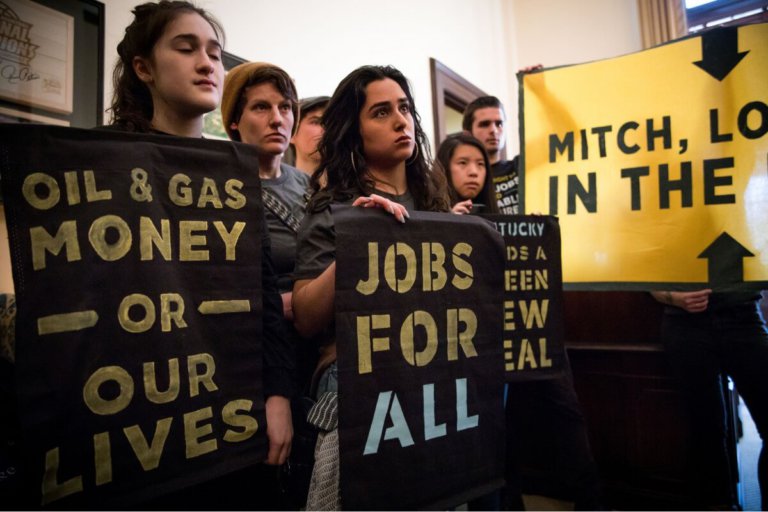
“When I graduated, I owed US$48,000 in student loan debt. I’ve paid off almost US$6,000. Today, I owe US$49,000,” a 2016 graduate of South Carolina’s Columbia College told Study International.
As the 2020 US presidential race heats up, politicians’ lofty promises of blanket student debt forgiveness has swarmed social media feeds and sparked hope among millions of graduates.
For this borrower, whose total student loan debt is creeping towards the US$50,000 mark, I can only wish for some sort of debt relief beyond my income-driven repayment plan.
But I’m not holding my breath.
At US$1.5 trillion, the student debt crisis has broken records this year. In the US, student loan debt is second only to mortgage debt at US$8.8 trillion. Compare these two deficits to the total US national debt of US$22 trillion.
The fact that the amount spent on tax cuts for ultra-wealthy Republicans would cover the entire country’s student loan debt only exacerbates the issue.
Houston, I think it’s safe to say we have a problem. A lot of problems, actually.
Debt forgiveness vs. education reform
As finance writer Robert Farrington points out in a recent Forbes article, blanket student loan forgiveness plans treat the symptoms, rather than the cause, of student loan debt:
“When the average cost of one year at a four-year, public school is $10,230 according to College Board, and those costs surge to $21,270 per year when you add in room and board, it’s mind-blogging how a ‘solution’ exists that doesn’t attempt to control costs in any way.”
How did American students end up with $1.6 trillion in student loan debt?
They pay more than any other OECD countries for tuition.
Together we are going to end this crisis by fighting for free public colleges and universities. pic.twitter.com/YtpvO1IXr4
— Ro Khanna (@RoKhanna) 3 July 2019
Farrington’s observation is right on the money. Student loan forgiveness legislation without a contingency plan for controlling tuition costs isn’t just a bad idea — it’s an outright insult to graduates and students past, present and future.
At least UK universities are capped on the tuition fees they can charge. Meanwhile, the average American university student spends nearly US$100,000 on their degree, and schools can raise tuition costs whenever and however they please.
Out with the old, in with the new
“Millennials deserve a break from boomers,” reads part of the headline of a recent Vox article on Bernie Sanders’ student loan forgiveness proposal.
I typically avoid discussing politics publicly — largely due to political depression in addition to your garden-variety chronic depression — but I’ll admit I felt the Bern during the last presidential race.
That flame has since fizzled out.
While I admire Sanders’ impressive track record as an activist and agree with most of his ideas, including parts of his student loan forgiveness proposal. We do need a break from the boomers – that includes candidates like Biden, Sanders and Warren.
Sanders and Warren, by all appearances at least, sympathise with and fight for the working class, but let’s be realistic;if either of them becomes president, their proposals likely won’t pass a perpetually divided Congress, no matter how much I and other working-class folks might want (and need) them to.
Despite this, literally anything is better than the alternative: four more years of an unfathomably corrupt, xenophobic administration run by a hypocritical, racist, homophobic con. Frankly, there aren’t enough strong words in the English language to encapsulate my disdain for a government that is literally running concentration camps in 2019.

US Senator and Democratic Presidential Candidate Bernie Sanders speaks during a campaign rally at the Family Arena in Saint Charles, Missouri. Source: Shutterstock
Phew.
Though I will do my civic duty and vote for whatever candidate opposes Trump, I can’t help but fear a repeat of the last election. What if the primary is rigged again? What if the election is rigged again? What if we don’t get the candidate we voted for — again?
Add in a dash of eco-anxiety…
Even writing this article fills me with despair and hopelessness. “What’s the point? The forthcoming climate change catastrophe will nullify these problems anyway.”
Every time I go to the supermarket, I feel almost suffocated by the sheer amount of unnecessary single-use plastic packaging. I’ve made small changes to reduce my carbon footprint: switched to shampoo and conditioner bars, started shopping second-hand where possible. I’ve made big changes, too: refrained from driving and chosen not to have children.
I acknowledge my own part, though dizzyingly miniscule, in combating climate change. Meanwhile, Trump denies climate change in public and files land development permits citing the threat of climate change to his properties in private.
Other politicians propose water waste charges and carbon taxes, causing the responsibility, and the guilt, to trickle down to us consumers. Conversely, manufacturers are mostly free to produce unlimited amounts of plastic packaging. Cruise ships dump tonnes of waste right into the ocean.
Even my home state of South Carolina recently voted to spend US$2.7 million to sink a military submarine that’s sat idle in the Charleston Harbor for 40 years. That’s almost US$3 million to pollute an already dying ocean.
It’s enough to drive anyone mad.

Democrats and Israeli environmental activists protest against Donald Trump In front of the US Embassy in Tel Aviv. Source: Shutterstock
What a time to be alive
To cope, I try to remind myself that “panic is a form of hubris. It comes from the smug feeling that one knows exactly where the world is heading: down,” to quote one of my favorite authors, Dr. Yuval Harari.
Climate change aside, in an economic and political climate characterised by stagnating wages, inflated costs of living and bold-faced corruption, it’s hard to stay optimistic.
Parents, grandparents, aunts, uncles: think twice before criticizing millennials as being lazy or self-absorbed. Our generation is blamed for all sorts problems we didn’t create, and we’re tasked with saving a world we didn’t destroy.
The bottom line is, the whole human race needs to come together, and fast, to solve all the bureaucratic messes we’ve made and the myriad natural disasters we’ve caused.
But I’m not holding my breath.
Liked this? Then you’ll love…
How can schools ensure students are climate change-ready
Opinion: The UK government has a responsibility to ease crippling student debt







